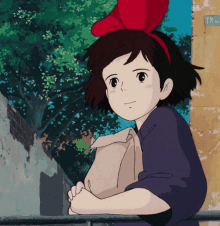Technology is rewriting everything from the way we communicate to the way we learn, shop-even drive. Yet of the many changes we've seen, one of the most curious is the way that artificial intelligence increasingly touches the more personal sides of life-our mental health. With the likes of ChatGPT, Woebot, and Wysa providing access to emotional support and resources regarding one's mental health, some are starting to ask the question: Will AI replace the classic therapist? As AI continues to get even smarter, what could this tell us about the future of mental health treatment?
Let us slide into your dms 🥰
Get notified of top trending articles like this one every week! (we won't spam you)Artificial Intelligence in Mental Health
Over the past decade, mental health has undergone some serious changes. Conventional therapy, which involves face-to-face sessions with a licensed therapist, is still considered the gold standard. Efficiency in terms of access and availability has given rise to the development of digital platforms for mental health support. When traditional therapy isn't possible due to cost, location, or time, many are looking to mental health apps, online services for therapy, and even AI-powered chatbots as venues through which they can seek help.
For example, some of these platforms, like Woebot, use AI to engage users through mental health strategies. The AI chatbots can ask about your day, any problems you may have faced, coping skills, and at times suggest exercises like mindfulness and journaling as a means of maintaining good mental health. Probably the most appealing factor is their convenience: they are available 24/7, mostly on your phone, and usually at little or no cost. More importantly, for most of these people who have never seen a therapist, this is the first step through AI-driven tools to fix their mental health.
This level of access is critical, as millions of people around the world cannot get mental health care. Whether one cannot afford to pay for therapy, cannot get an appointment, or there is stigma associated with treatment, too many are kept from getting help that is needed. AI-powered platforms have the potential to break down some of those barriers by offering immediate, judgment-free support.
But with convenience comes a very important question: Is it enough? Can AI understand and help people the way a trained therapist can?

Image Credit: Daria Nepriakhina from Unsplash

Take the Quiz: What is your IQ level?
Find out how smart you are by taking this quiz!
Is AI Truly Capable of Replacing Human Therapists?
While AI may be able to provide invaluable tools in terms of mental health support, there are some very real questions over whether this will ever replace the human element of therapy. Therapy is not about providing advice or reading from some sort of script; it is about establishing trust, understanding the complexity of emotions, and providing empathetic care on an individual level. These are areas at which human therapists excel and where AI still faces significant limitations. To understand the difference, let's see what AI does well and where it fails.
What AI Does Well:
AI is good at certain tasks related to mental health care. First, AI processes enormous volumes of data and can, therefore, identify patterns in behavior and mood over time. It can remind the user to practice coping strategies, suggest exercises based on mood, or track symptoms such as anxiety or depression.
This could prove incredibly helpful during periods between therapy sessions, offering ongoing support when a therapist is not available. Suppose you have been feeling down for several weeks. An AI app might pick this up by monitoring your responses to daily check-ins and flag it for you, so you would know to take action-schedule an appointment with your therapist or do an exercise that has helped you in the past. Several platforms go further by offering CBT exercises, which have proven value in treating anxiety and depression.
This is also where AI brings an element of anonymity and safety. Many people find it very difficult to open up about their mental health, especially in areas that are very personal or sensitive. Talking to an AI might feel safer because there's no judgment involved and no fear of being misunderstood. In that respect, AI can act like a stepping stone for such patients who are perhaps uneasy about getting traditional therapy.
Where AI Falls Short:
However, while AI can drive advice and consistency with great effect, it certainly lacks the emotional depth and empathy that humans bring onto the couch. Much of therapy is about navigating complex emotional landscapes, understanding a person's history, and responding with care and sensitivity that fits said individual. AI might ultimately be able to mimic conversations but does not understand emotions and context as well as humans do.
For instance, maybe AI will recognize from speech patterns or mood that you're stressed, yet will not understand the deeper, nuanced reasons behind it. But a human therapist reads between the lines, makes the right follow-up questions, and can offer emotional support beyond mere advice. They will help you explore how past events in your life, including family dynamics, have created your current mental state.
Furthermore, therapy does not deal with "fixing" problems but rather with establishing trust and support through the development of a relationship. This, along with what is often referred to as the "therapeutic alliance," has been considered among the most important factors toward successful therapy. A therapist and client, through a well-developed relationship, are allowed to communicate thoughts and feelings in a non-judgmental manner. While AI can offer a neutral ear with which to hear, it cannot develop such a meaningful relationship.

Image Credit: Zhenyu Luo from Unsplash
The Future: A Blended Approach?
Yet, what place will AI play in the future of mental health care if it is not going to replace therapists completely? The answer possibly lies with a blended approach combining AI with human therapists. Or, rather than replacing therapists, AI could enhance the process-managing elements of the task at hand that don't need emotional intelligence: symptom monitoring, perhaps, daily check-in management, or basic coping suggestions. In this way, the therapist would be freed up to focus on what humans do best in providing care: empathy, deep listening, and helping work through complex emotions.
It goes something like this: You see a therapist on a regular basis, but in between sessions, you continue with your work via an AI-powered app-tracking your mood, doing daily exercises, and receiving feedback in real time about your emotional state. Your therapist can review the data during your session time, so your session time with them is even more concentrated and personal.
In this respect, the collaboration of AI with human therapists may well bring in superior and more effective therapy, truly combining the best of both worlds. In the future, AI may grow the landscape of mental health-even more than it does now-but not as a replacement for human therapists, yet rather as a strong tool toward making therapy more accessible, flexible, and affordable.

Image Credit: Priscilla Du Preez from Unsplash
Conclusion: Human Touch Remains Key
AI is able to totally revolutionize the way mental health care is given, in a way that would make support more accessible and more affordable for millions of people. Yet, it's unrealistic to believe that traditional therapists will be replaced with AI anytime soon.
The very emotional connection, empathy, and trust offered by human therapists in the process of healing is what no algorithm or chatbot can completely replicate. What we are more likely to see is a future where AI and human therapists work hand in hand in providing a more holistic approach to mental health care. AI can be assigned to monitor improvements and suggest coping strategies, while the deeper emotional works are done by the therapist, which requires human intuition and empathetic understanding.
What will matter, as AI continues to evolve, is the search for ways of merging technology with the human touch so that a future is created where mental health care is afforded with more flexibility, access, and effectiveness for all.








.jpeg)





